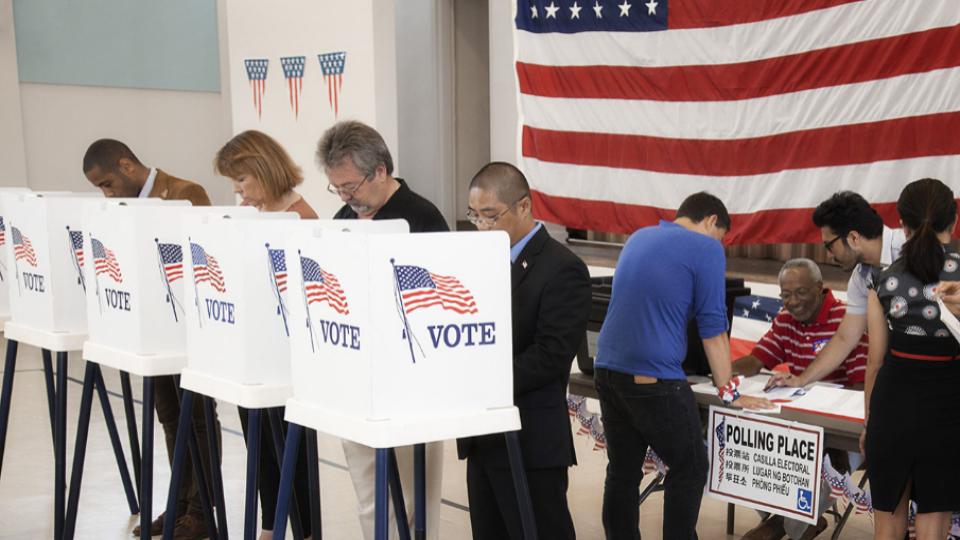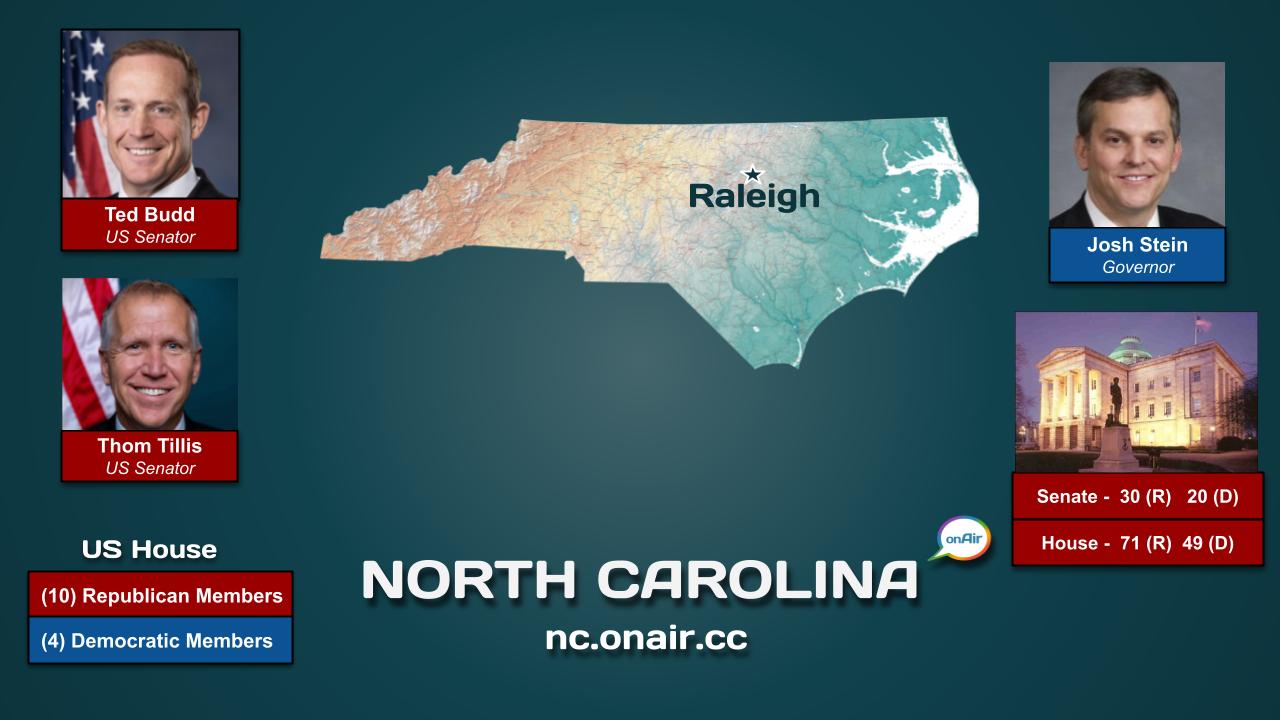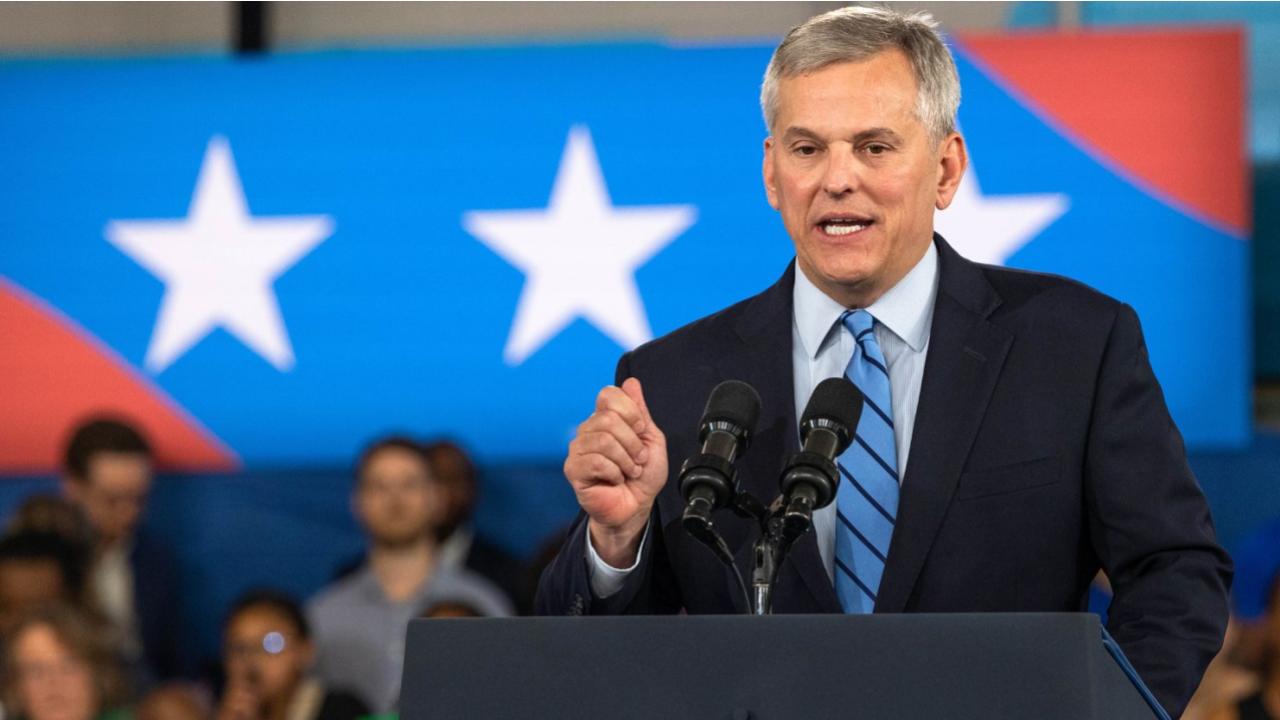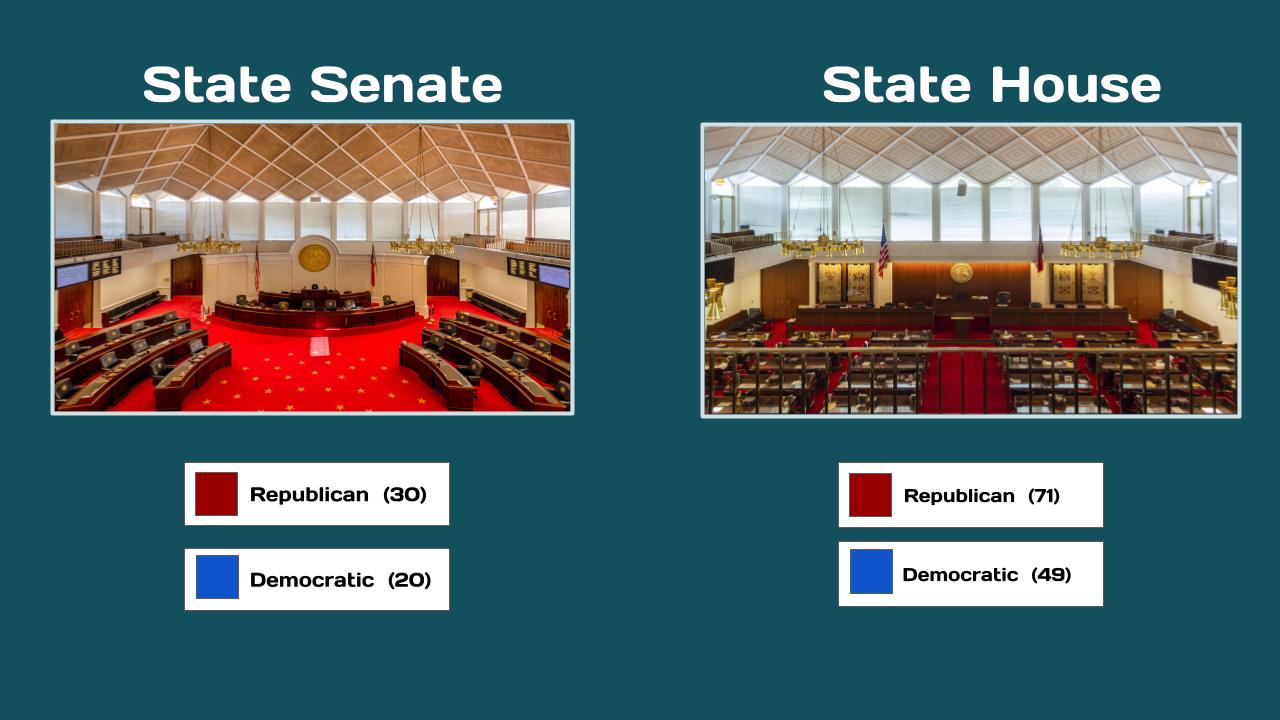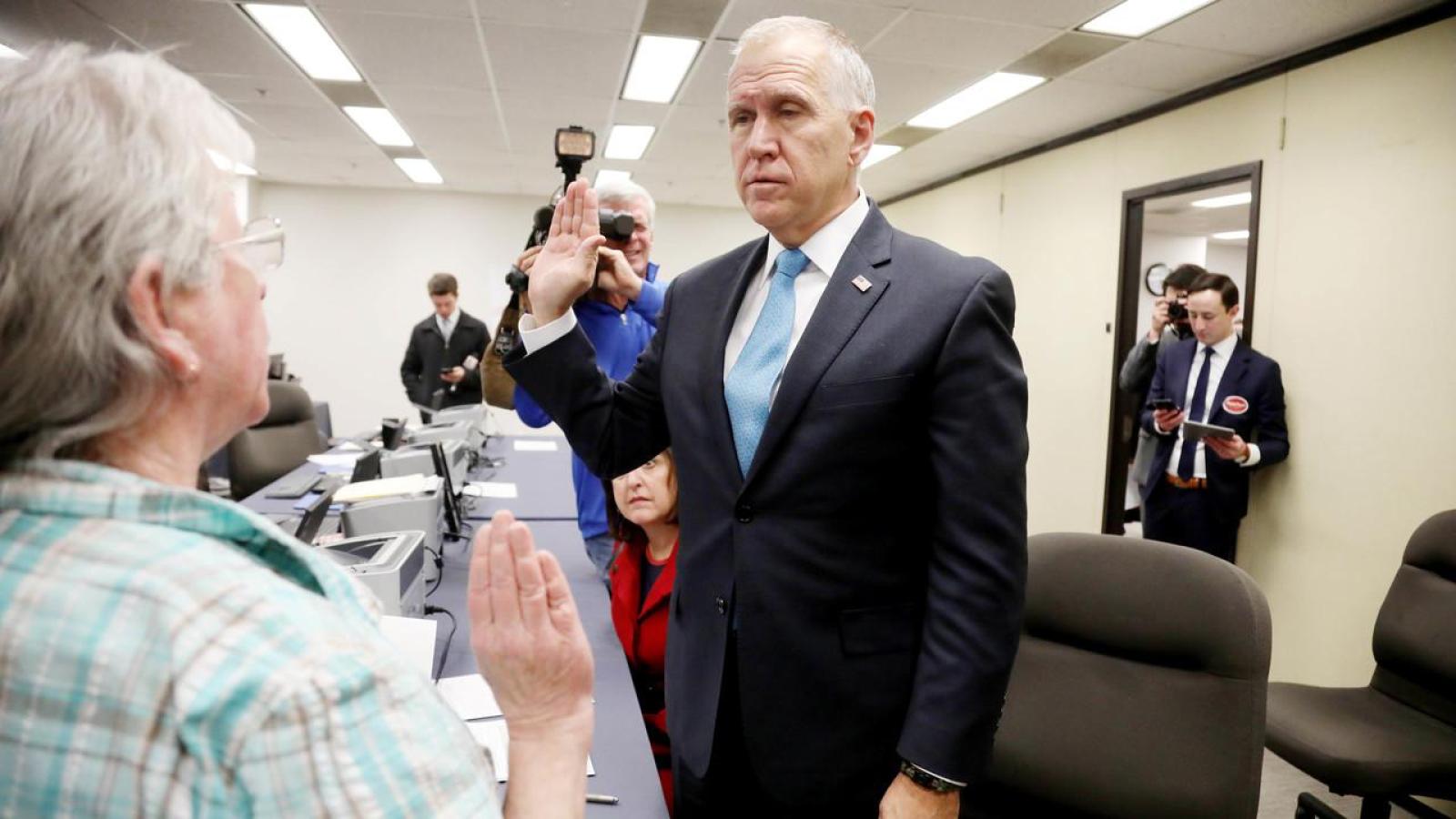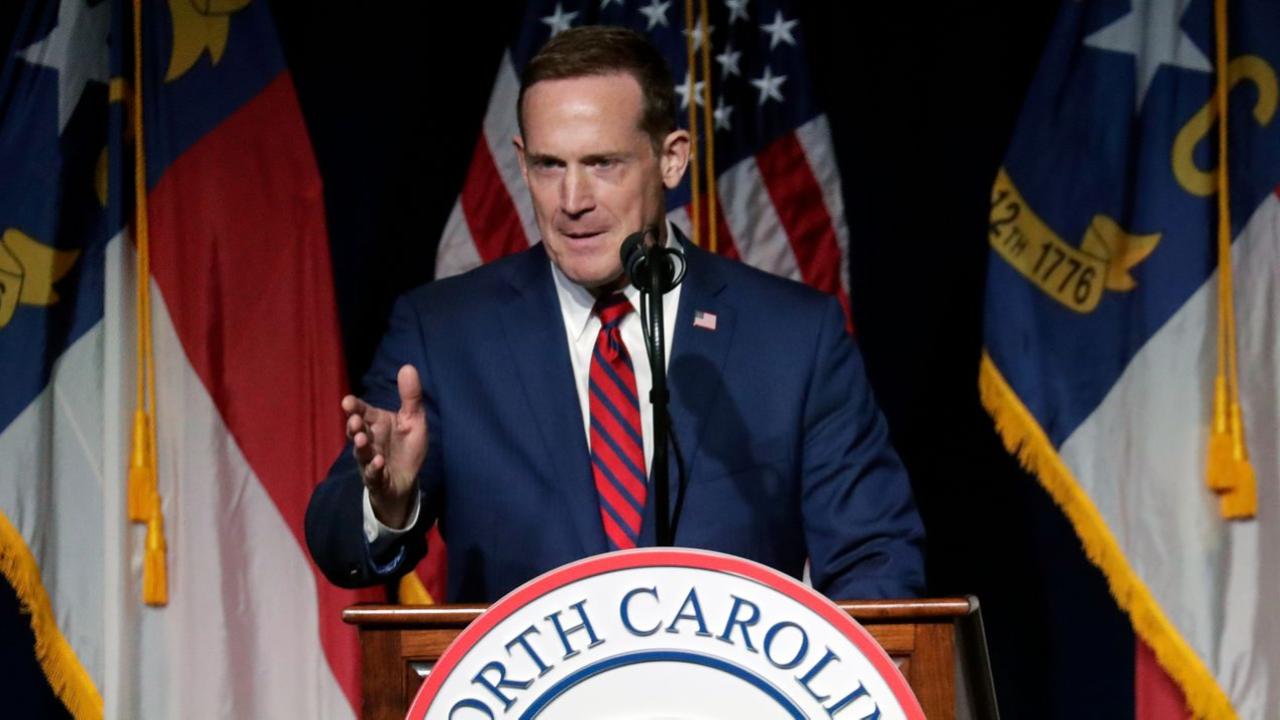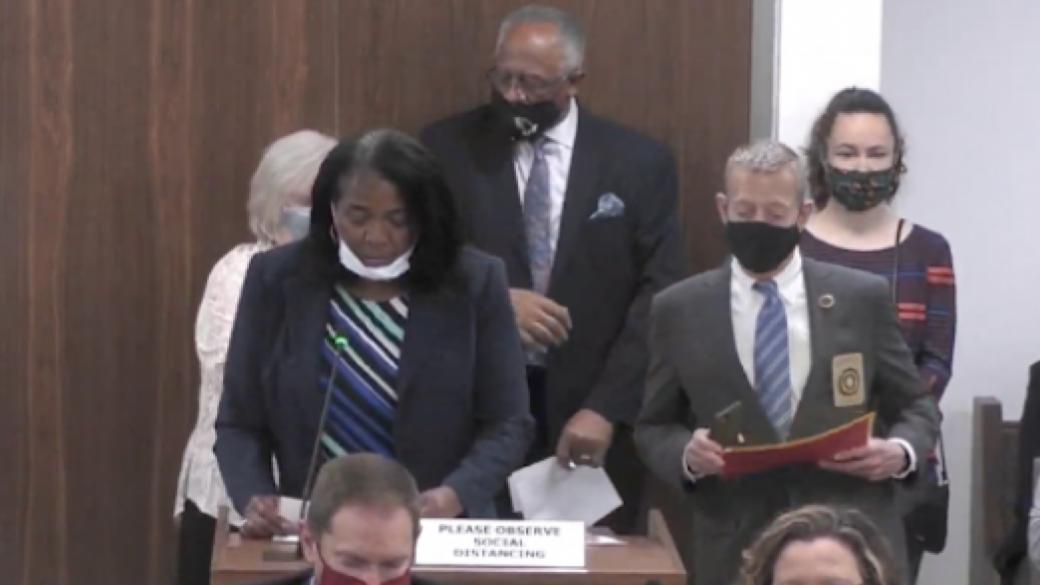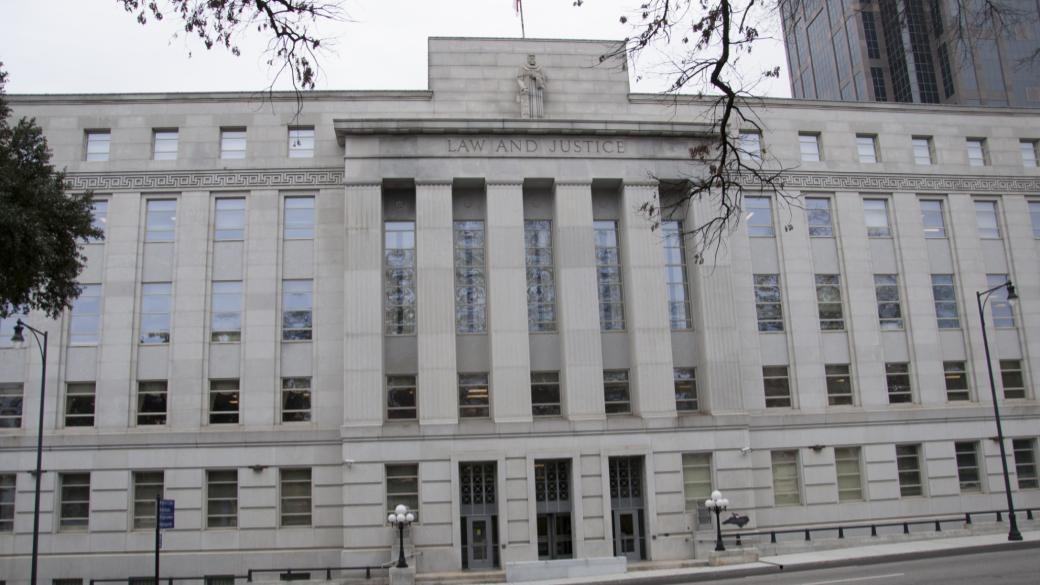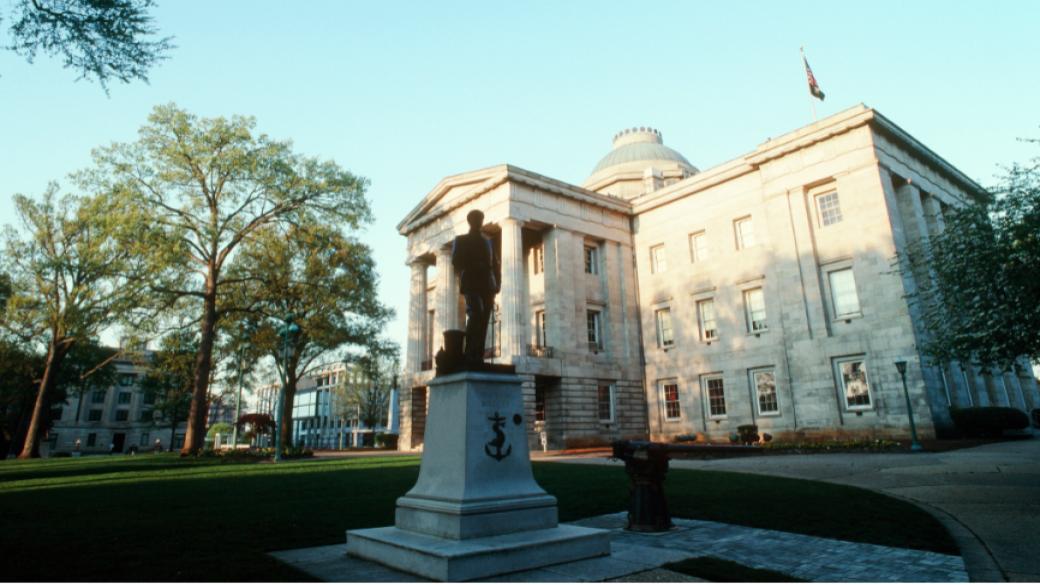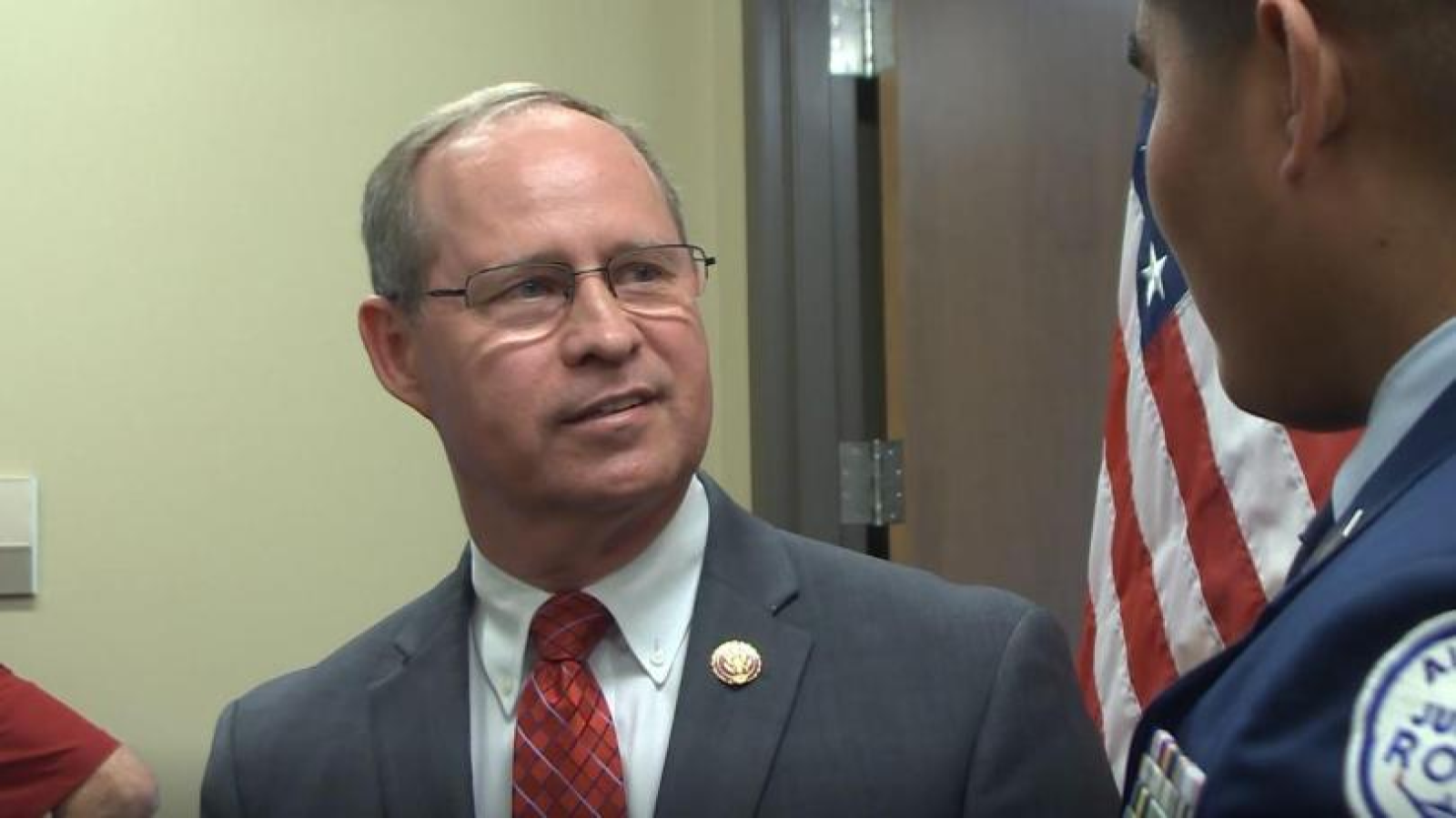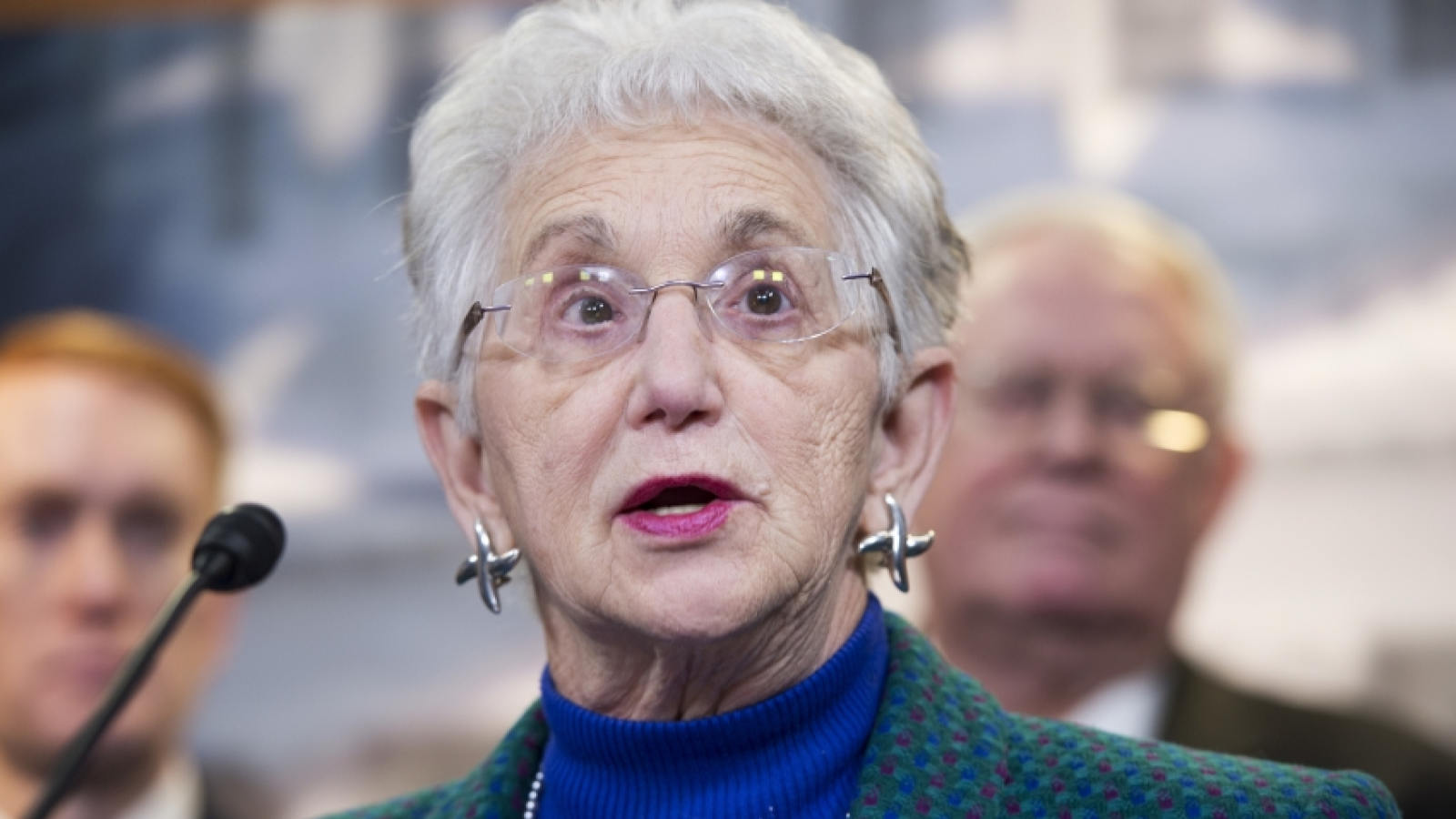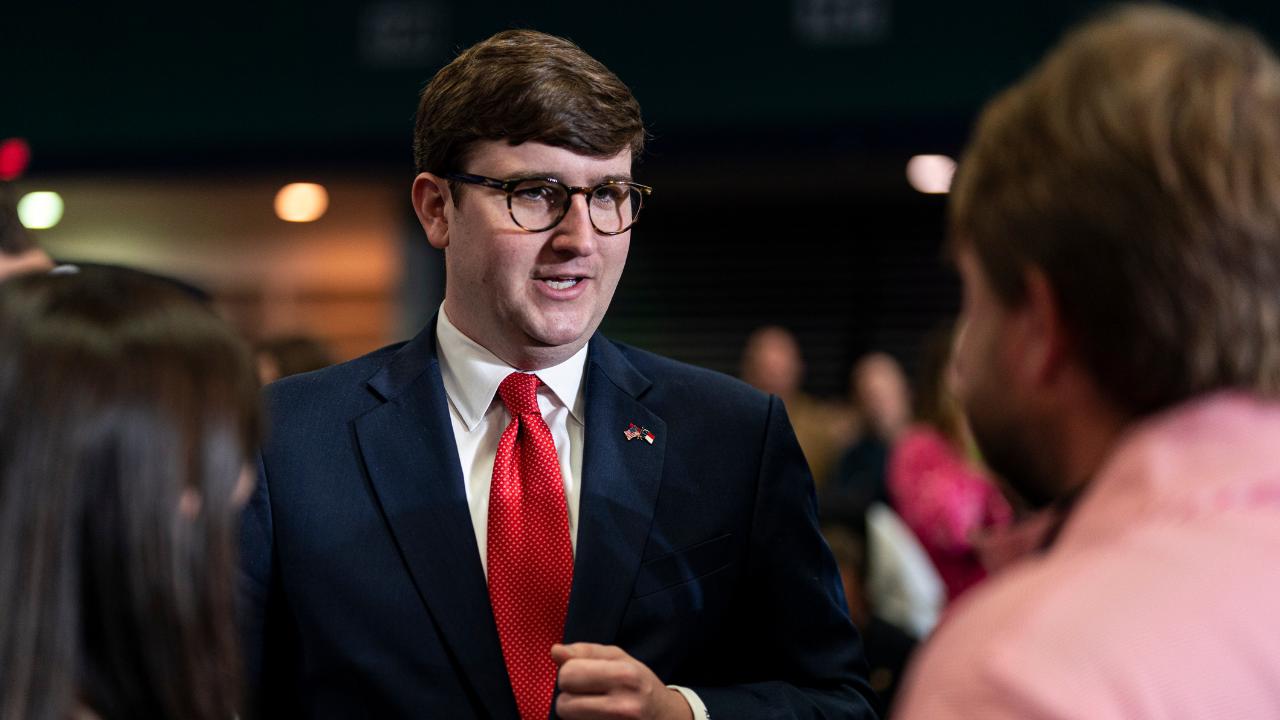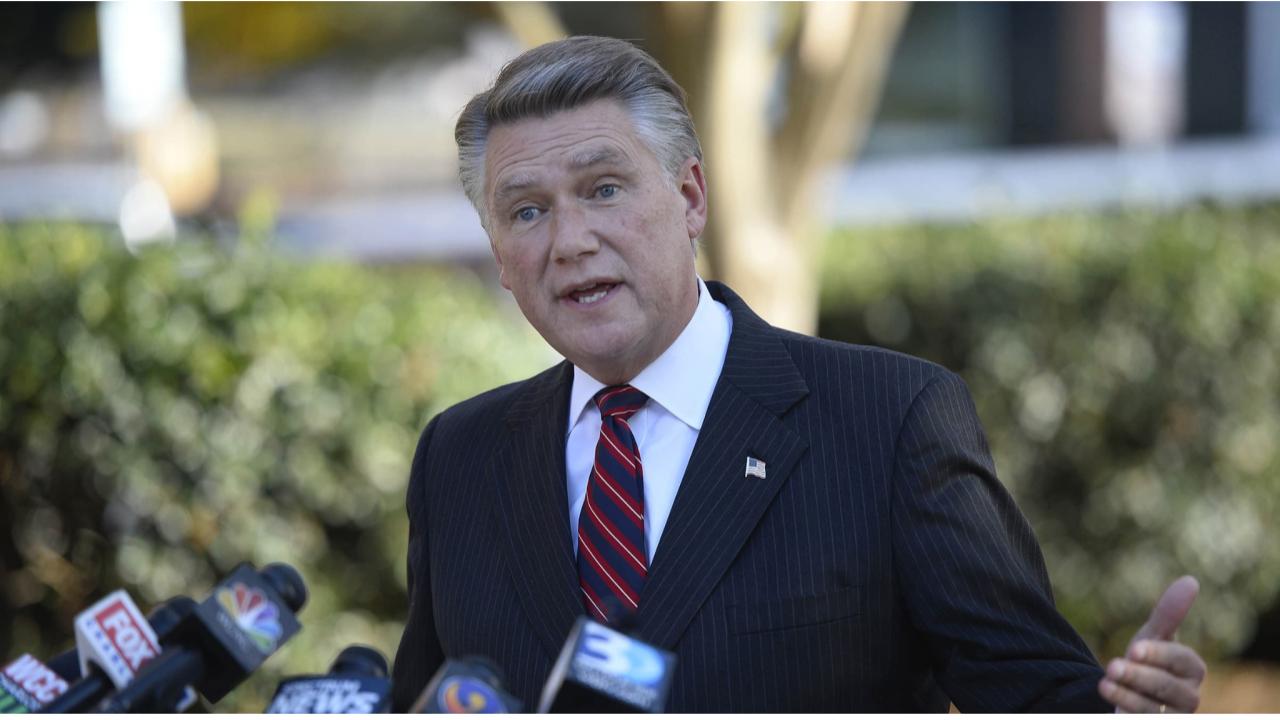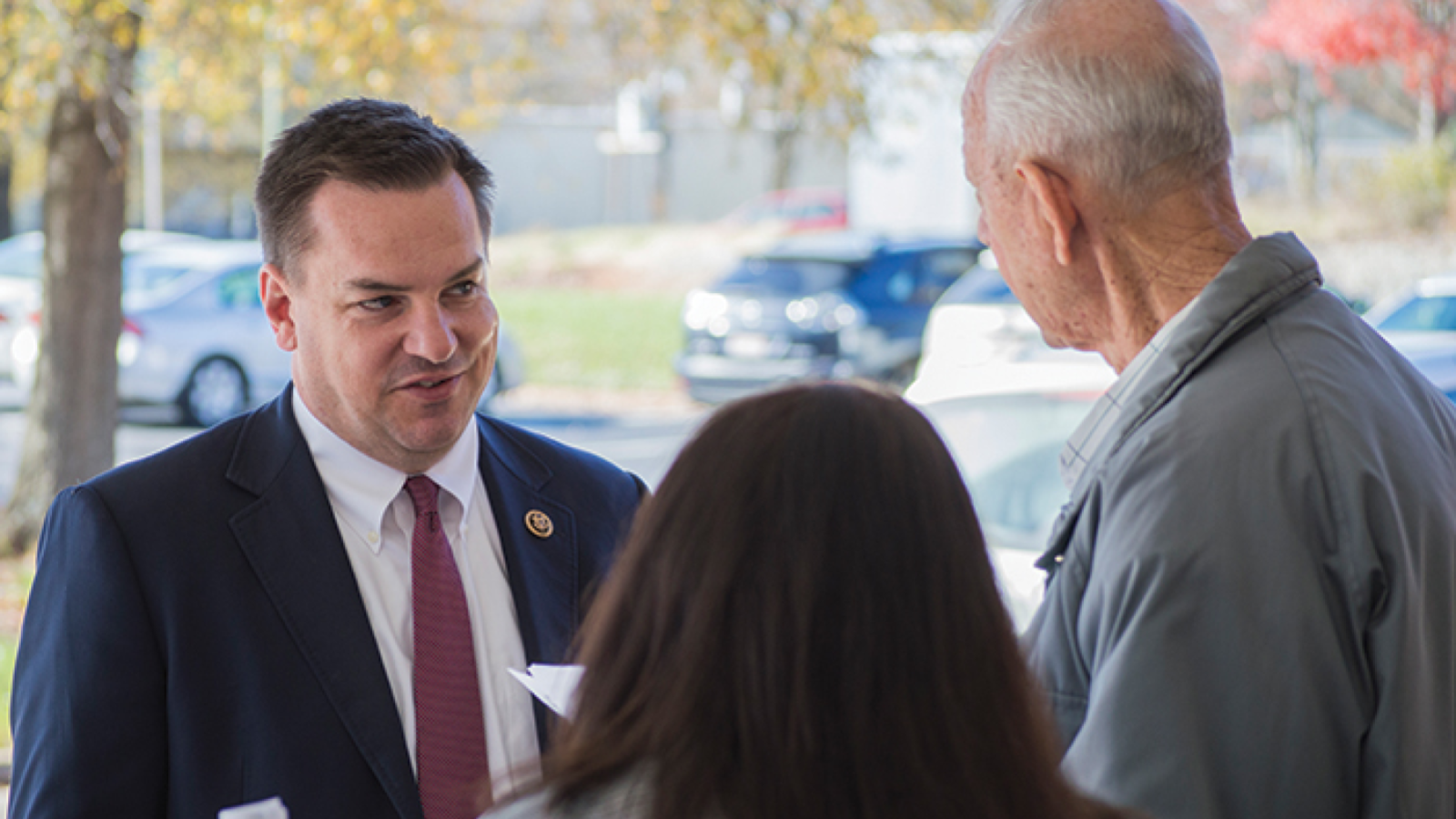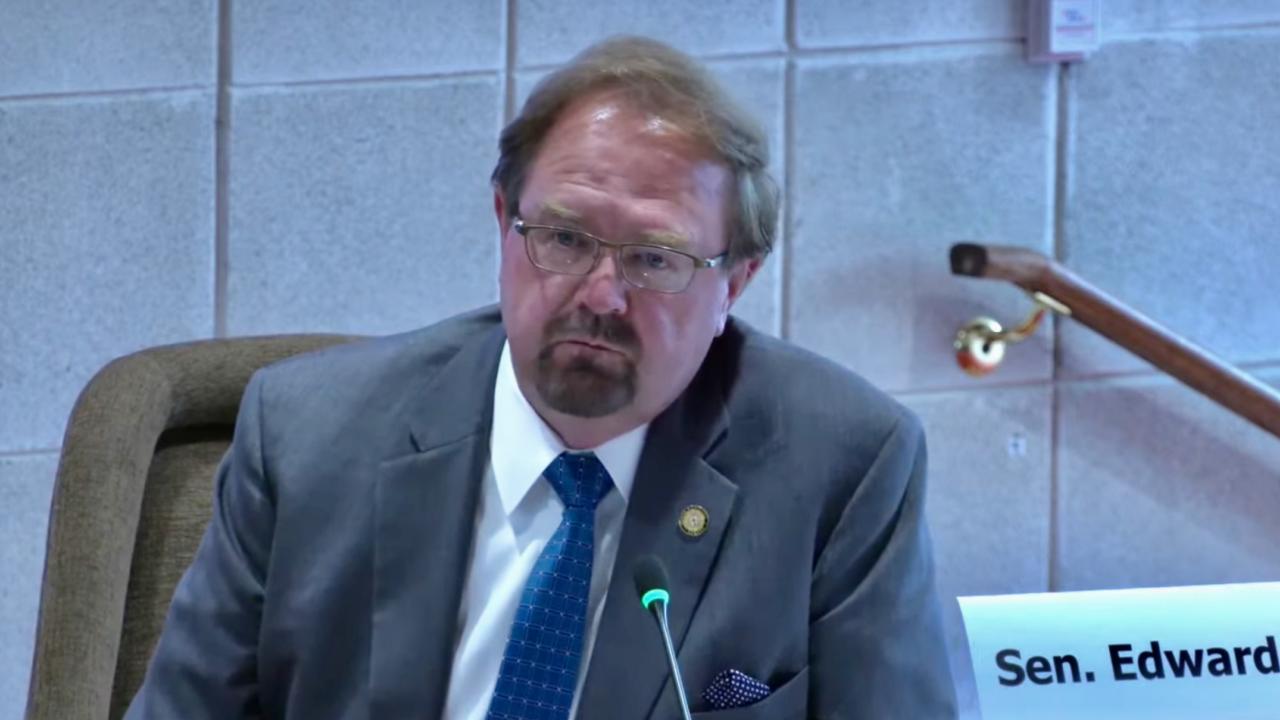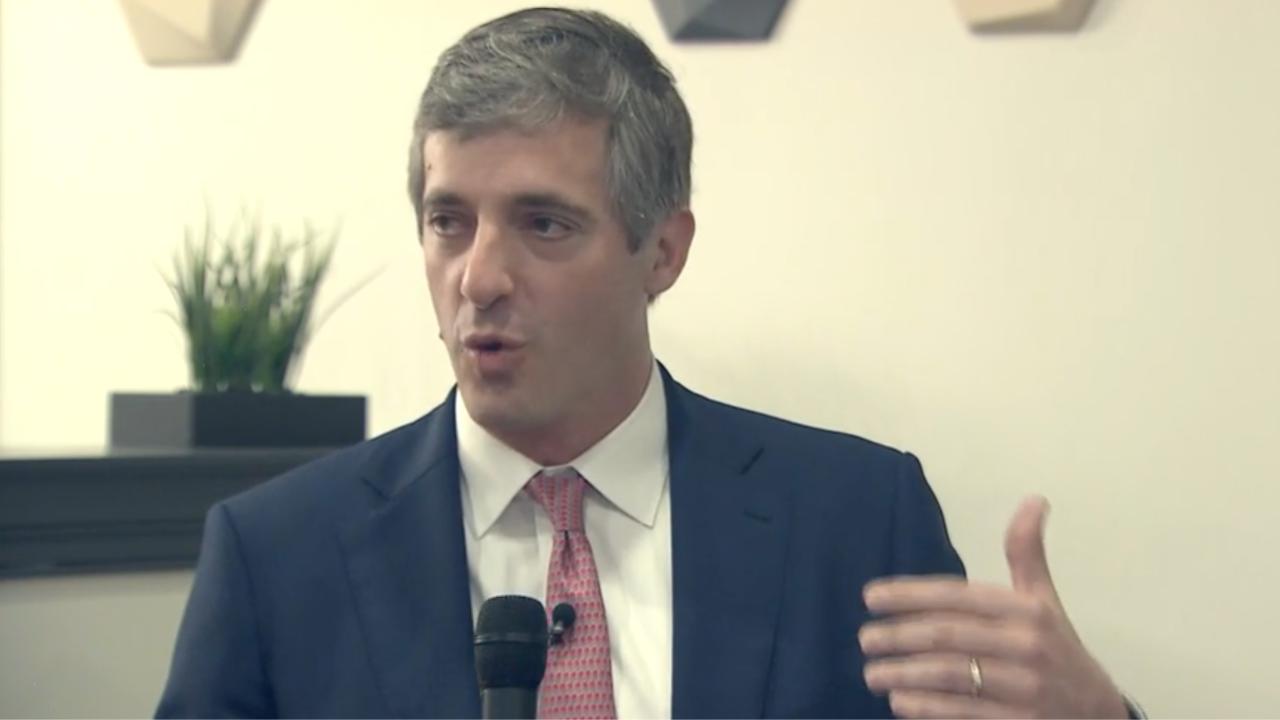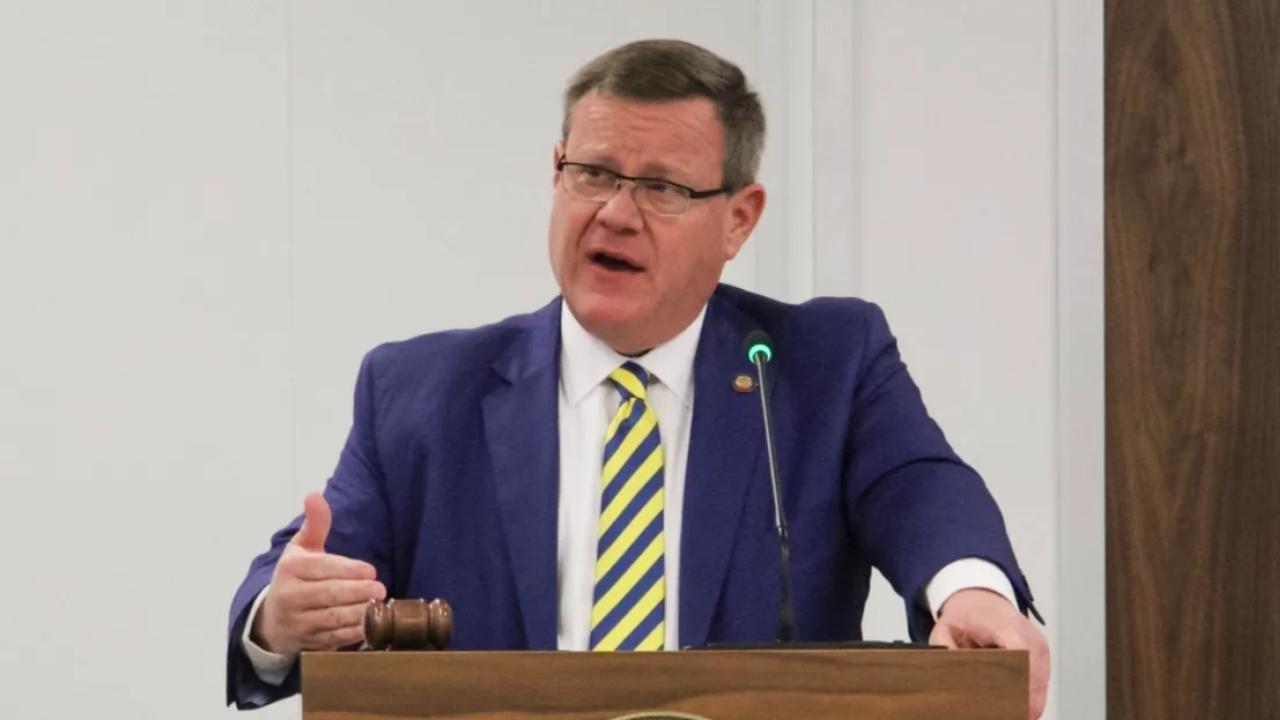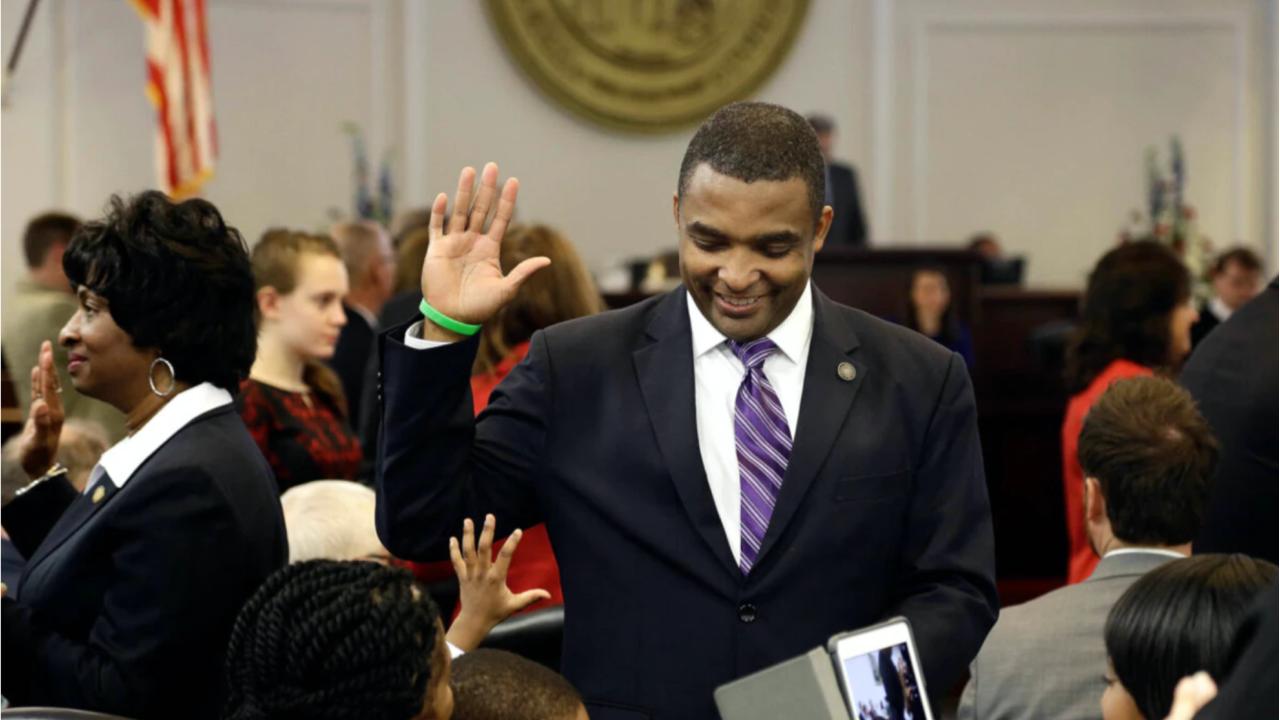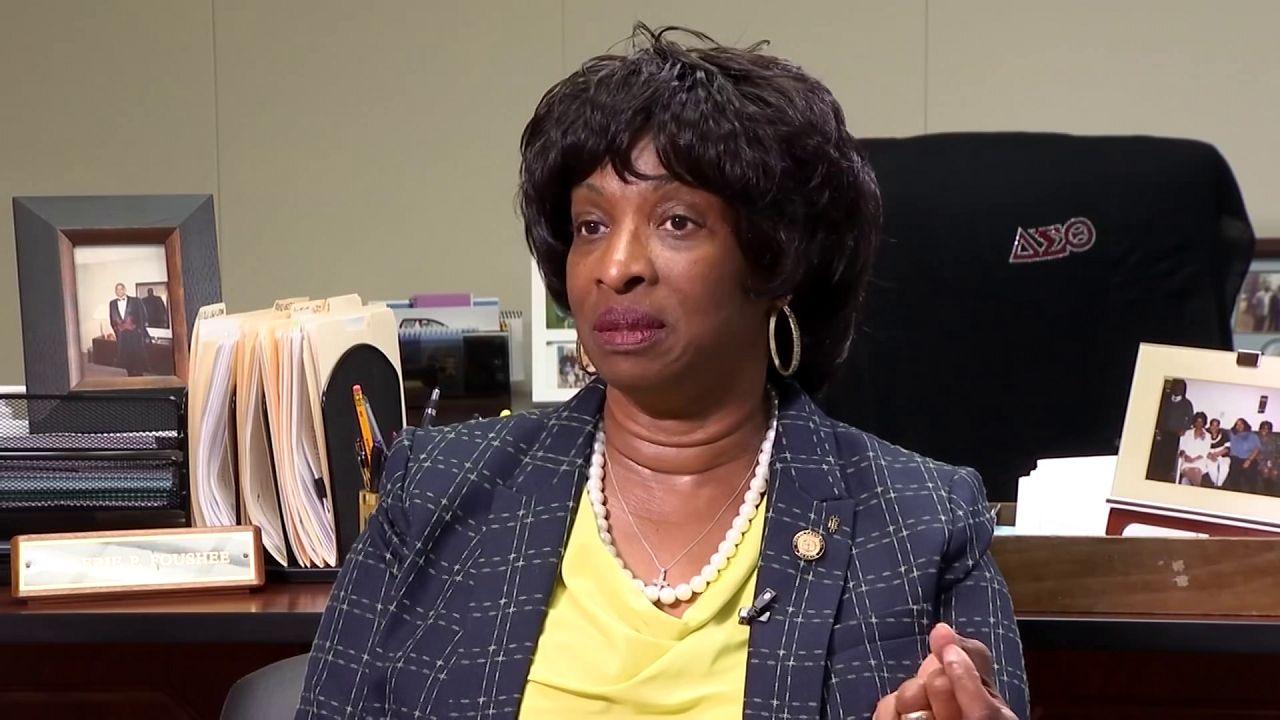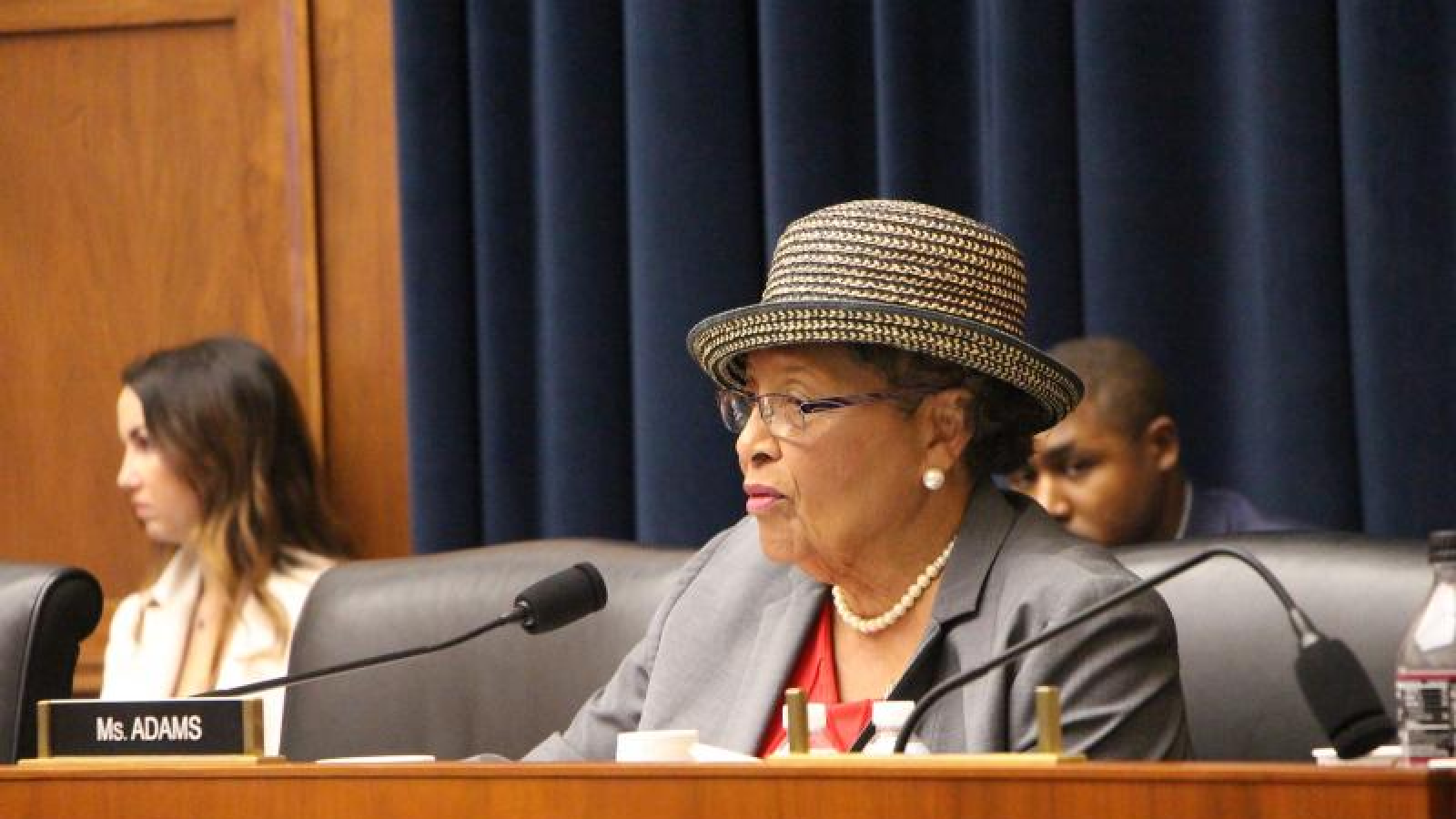Summary
North Carolina is located in the Southern region of the USA with Raleigh as its capital. Josh Stein (D) is Governor.
The North Carolina General Assembly has 42 Senate members and 70 House members.
OnAir Post: North Carolina onAir
News
The base content in each post in this North Carolina onAir Hub has been updated as of 12/20/23. In addition to the eight posts on the home page, in depth posts on each US House member and posts on North Carolina government and elections have been started. These posts have been shared with the US onAir Hub and will updated in the US onAir automatically when they are updated in this hub.
If your university or nonpartisan organization (such as a government focused research center, citizen engagement program or a League of Women Voters chapter) is interested in assisting the US onAir network to help curate new issue posts or other posts on this Hub and moderate the forums in each post, contact Ben Murphy at Ben.Murphy@onair.cc.
We are also supporting college students to start an onAir chapter on the their campus to coordinate the curation and moderation of posts especially on state and local representatives and government.
About
The North Carolina onAir Hub is managed by students supporting North Carolinians to become more informed about and engaged in local, state, and federal politics while facilitating more civil and positive discussions with their representatives, candidates, and fellow citizens.
- North Carolina onAir is one of 50 state governance and elections hubs that the US onAir Network is providing to help reinvigorate US democracy. This post has short summaries of current state and federal representatives with links to their complete Hub posts. Students curate post content from government, campaign, social media, and public websites. Key content on the North Carolina Hub is also replicated on the US onAir nations Hub at: us.onair.cc.
- North Carolina students will be forming onAir chapters in their colleges and universities to help curate Hub content. As more students participate and more onAir chapters are started, we will expand to include more state and local content as well as increase the number of aircasts – student-led, livestreamed, online discussions with candidates, representatives, and the public.
Find out more about Who Represents Me in North Carolina
Learn more about the US onAir Network
Web Links
State Representatives
Governor Roy Cooper
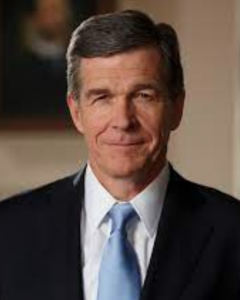 Current Position: Governor since 2017
Current Position: Governor since 2017
Affiliation: Democrat
Former Positions: Attorney General from 2001 – 2017; State Senator from 1991 – 2001; US Representative from 1987 – 1991
While in law school, then-Governor Jim Hunt appointed Cooper to the State Goals and Policy Board, an advisory group that sought to achieve long- and short-range goals and policies for the state. Hunt also appointed Cooper to the Interim Balance Growth Board and the North Carolina 2000 Commission. In 1982, Cooper joined the law firm Fields, Cooper & Henderson in Nashville, North Carolina, the same firm his father had been a member o. Three years later, he was named a partner in the firm.[16]
Cooper served as the Rocky Mount and Nash County chairman of Lauch Faircloth’s unsuccessful 1984 gubernatorial campaign. He was a member of the Rocky Mount Chamber of Commerce and UNC-Chapel Hill’s Board of Visitors.
Featured Quote:
Business is thriving in North Carolina, and it’s not hard to see why — our talented workers, welcoming communities and nationally-ranked universities and community colleges continue bringing more companies to our great state.
OnAir Post: Roy Cooper – NC
US Representatives
Senator Thom Tillis
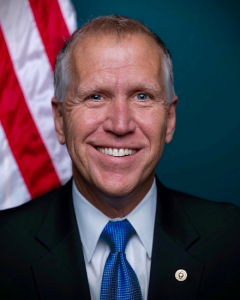 Current Position: US Senator since 2015
Current Position: US Senator since 2015
Affiliation: Republican
Former Positions: US Representative from 2007 – 2015; Accounting consultant from 1986 – 2007
Tillis served in the North Carolina House of Representatives from 2007 to 2015, and as its speaker from 2011 to 2015. In the Senate, Tillis has sought to repeal the Affordable Care Act, proposed a 15-year pathway to citizenship for some undocumented youth as a more conservative alternative to the bipartisan DREAM Act, and voted for the Bipartisan Safer Communities Act.
In 1990, he was recruited to work for accounting and consulting firm Price Waterhouse. In 1996, Tillis was promoted to partner.
Featured Quote:
Today, I joined my colleagues to talk about the Democrats’ reckless tax and spending spree and the consequences of the rising costs facing Americans.
OnAir Post: Thom Tillis – NC
Senator Ted Budd
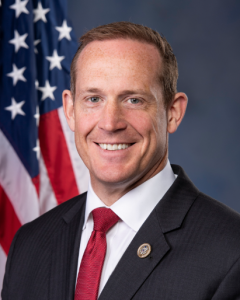 Current Position: US Representative of District 13 since 2017
Current Position: US Representative of District 13 since 2017
Affiliation: Republican
Former Position: Farmer and gun store owner from 1996 – 2017
Senator Budd serves on the Senate Armed Services Committee; the Senate Commerce, Science, and Transportation Committee; the Senate Health, Education, Labor and Pensions Committee; and the Senate Small Business and Entrepreneurship Committee.
Budd owns a gun store in Rural Hall, North Carolina. The father of home-schooled children, he also served as a board member for North Carolinians for Home Education.
OnAir Post: Ted Budd – NC
Don Davis NC-01
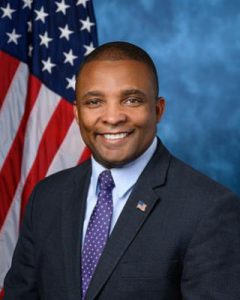 Current Position: State Senator of District 5
Current Position: State Senator of District 5
Affiliation: Democrat
District: many rural areas of northeastern North Carolina, among the state’s most economically poor, as well as outer exurbs of urbanized Research Triangle. It contains towns and cities such as Greenville, Rocky Mount, Wilson, Goldsboro, Henderson, and Roanoke Rapids.
Upcoming Election:
Elected mayor of Snow Hill in 2001, Davis also chaired North Carolina’s 1st congressional district Democratic Party. He represented the 5th district in the North Carolina Senate from 2013 to 2023. Davis was first elected to the post in 2008, representing Pitt, Wayne, and Greene counties. He was defeated for reelection in 2010, but ran and won a Senate seat for the newly redrawn 5th district in the 2012 election.
Deborah Ross NC-02
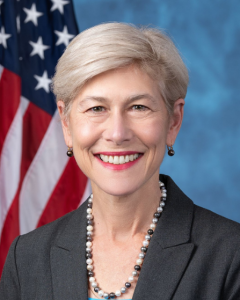 Current Position: US Representative of NC 2nd District since 2021
Current Position: US Representative of NC 2nd District since 2021
Affiliation: Democrat
Former Position: Lawyer from 1990 – 2013
District: The district contains most of Wake County. Prior to court-mandated redistricting in 2019, it also included northern Johnston County, southern Nash County, far western Wilson County, and all of Franklin and Harnett counties.
Upcoming Election:
Ross was the Democratic nominee in the 2016 U.S. Senate election in North Carolina, unsuccessfully challenging Republican incumbent Richard Burr in the general election.
Ross worked for Raleigh-based Hunton & Williams as a tax litigator and municipal bond lawyer. She taught at Duke Law School as a senior lecturing fellow.
Featured Quote:
Republicans want to pick their voters rather than have voters pick their politicians. Honored to join @TheRevAl
to discuss how we can combat GOP-led voter suppression efforts in legislatures across America. We must use every tool at our disposal to protect the right to vote.
OnAir Post: Deborah Ross NC-02
Greg Murphy NC-03
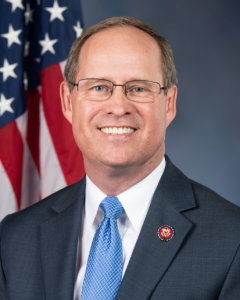 Current Position: US Representative of NC 3rd District since 2020
Current Position: US Representative of NC 3rd District since 2020
Affiliation: Republican
Former Positions: State Delegate from 2015 – 2019; Surgeon from 1991 – 2019
Other Positions: Higher Education and Workforce Investment Subcommittee – Education & Labor Committee
District: Atlantic coast of North Carolina. It covers the Outer Banks and the counties adjacent to the Pamlico Sound.
Upcoming Election:
After completing his residency in urology and renal transplantation at the University of Kentucky, Murphy and his wife settled in Greenville, North Carolina, where he began his medical practice. Murphy has traveled as a medical missionary.
He was a member of the faculty at the Brody School of Medicine at East Carolina University and served as Davidson College Alumni President from 2015 to 2017 while also serving on the board of trustees.
Featured Quote:
After throwing out the first pitch at the @mhcmarlins game tonight, I was proud to honor @USMC veteran Sergeant Andrew Anthony with a certificate of congressional recognition for his exceptional valor and service. Words cannot express our gratitude.
OnAir Post: Greg Murphy NC-03
Valerie Foushee NC-04
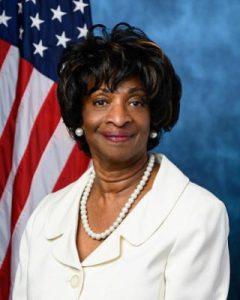 Current Position: US Representative for District 4 from 2023
Current Position: US Representative for District 4 from 2023
Affiliation: Democrat
Former Positions: North Carolina Senate 23rd district from 2013 to 2023; North Carolina House of Representatives 50th district from 2013 to 2013
District: central region of the state. The district includes all of Alamance County, Durham County, Granville County, Orange County, and Person County, as well as a portion of Caswell County.
Upcoming Election:
Valerie worked as an administrator for the Chapel Hill police department and served 25 years as a local and state elected official. She went from serving on the Chapel Hill-Carrboro City Schools Board, to being the first African American woman elected to chair the Orange County Board of Commissioners, to serving in the North Carolina State House and the North Carolina State Senate.
OnAir Post: Valerie Foushee NC-04
Virginia Foxx NC-05
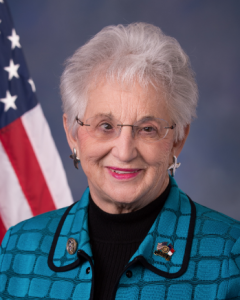 Current Position: US Representative of NC 5th District since 2005
Current Position: US Representative of NC 5th District since 2005
Affiliation: Republican
Former Position: State Senator from 1995 – 2005
Other Positions: House Committee on Education and Labor
District:
Upcoming Election:
Foxx served as Secretary of the House Republican Conference from 2013 to 2017.[3] She was the ranking member of the House Committee on Education and Labor from 2019 to 2023, and served as the committee’s chair from 2017 to 2019 and since 2023.
Foxx and her husband owned and operated a nursery and landscaping business. Foxx worked as a research assistant and then an English instructor at Caldwell Community College & Technical Institute and Appalachian State University before moving into university administration.
Featured Quote:
LIFE is the fundamental component to both liberty and the pursuit of happiness. It’s quite clear that Speaker Pelosi fails to recognize that. Absolutely shameful!
OnAir Post: Virginia Foxx NC-05
Addison McDowell NC-06
 Addison Parker McDowell (born January 21, 1994)[2] is an American politician from North Carolina. He is the member-elect for the United States House of Representatives in North Carolina’s 6th congressional district.
Addison Parker McDowell (born January 21, 1994)[2] is an American politician from North Carolina. He is the member-elect for the United States House of Representatives in North Carolina’s 6th congressional district.
McDowell decided to run for the United States House of Representatives in North Carolina’s 6th congressional district in the 2024 elections. He attributed his decision to run to his younger brother Luke’s death from an accidental overdose on fentanyl.
OnAir Post: Addison McDowell NC-06
David Rouzer NC-07
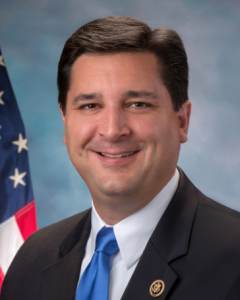 Current Position: US Representative of NC District 7 since 2015
Current Position: US Representative of NC District 7 since 2015
Affiliation: Republican
Former Position: State Senator from 2009 – 2013
District:
Upcoming Election:
Rouzer has been a small business owner of The Rouzer Company and the Warehouse Distribution. From 2001 to 2002, he was assistant to the dean at the North Carolina State University College of Agriculture and Life Sciences. From 2005 to 2006, he was an associate-rural administrator for the U.S. Department of Agriculture.
From 1996 to 2001, Rouzer was a legislative aide and Senior Policy Adviser for U.S. Senators Jesse Helms and Elizabeth Dole. In 2000, he ran for North Carolina Commissioner of Agriculture and lost the Republican primary.
Featured Quote:
Not long ago, President Biden supported the Hyde Amendment. But now, Democrats want to eliminate it. We must protect this long-standing, bipartisan policy that has saved nearly 2.5 million lives and stops taxpayer money from being used to fund abortion. #HydeSavesLives
OnAir Post: David Rouzer NC-07
Mark Harris NC-08
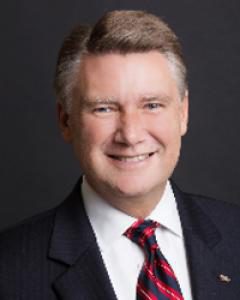 Mark Everette Harris (born April 24, 1966) is an American pastor and political candidate from North Carolina. A member of the Republican Party, he is the member-elect for North Carolina’s 8th congressional district.
Mark Everette Harris (born April 24, 1966) is an American pastor and political candidate from North Carolina. A member of the Republican Party, he is the member-elect for North Carolina’s 8th congressional district.
Harris first ran for the United States Senate in 2014, placing third in the Republican primary. He then ran to represent North Carolina’s 9th congressional district in the United States House of Representatives in the 2016 election, but he was defeated in the Republican primary by incumbent Robert Pittenger.
OnAir Post: Mark Harris NC-08
Richard Hudson NC-09
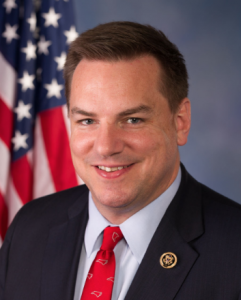 Current Position: US Representative of NC 9th District since 2013
Current Position: US Representative of NC 9th District since 2013
Affiliation: Republican
Former Position: Congressional staffer from 1999 – 2011
District: Union, Chatham, Anson, Richmond, Scotland, and Robeson counties; a southeast portion of Mecklenburg County; and parts of Cumberland, Moore and Bladen counties.
Upcoming Election:
Hudson served as district director for 8th District Congressman Robin Hayes from 1999 to 2005. At various times, he served on the staffs of Republicans Virginia Foxx, John Carter and Mike Conaway. He also served as communications director for the North Carolina Republican Party in the mid-1990s. In 1996 he worked on Richard Vinroot’s campaign for governor, and in 2008 as campaign manager for Pat McCrory’s run for governor. Hudson was the president of Cabarrus Marketing Group, a small business consulting and marketing company he started in 2011.
Featured Quote:
140 Members & I are calling on the ATF to withdraw its rule on stabilizing braces. This rule jeopardizes #2A rights of law-abiding gun owners & disabled veterans across the country, and could make millions of citizens felons overnight.
OnAir Post: Richard Hudson NC-09
Pat Harrigan NC-10
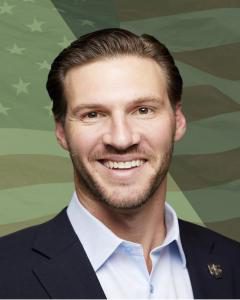 Patrick Luke Harrigan (born June 21, 1987)[2] is an American politician from North Carolina. He is the member-elect for the United States House of Representatives in North Carolina’s 10th congressional district.
Patrick Luke Harrigan (born June 21, 1987)[2] is an American politician from North Carolina. He is the member-elect for the United States House of Representatives in North Carolina’s 10th congressional district.
Harrigan graduated from the Francis Parker School and the United States Military Academy, where he majored in nuclear engineering. He completed the Basic Officer Leaders Course and trained as an United States Army Ranger.
OnAir Post: Pat Harrigan NC-10
Chuck Edwards NC-11
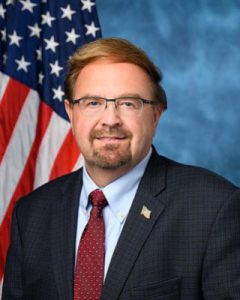 Current Position: US Representative of NC District 10 since 2005
Current Position: US Representative of NC District 10 since 2005
Affiliation: Republican
Former Position: Represented the 48th district in the North Carolina Senate from 2016 to 2023
District: western part of Rutherford County and the entirety of Avery, Buncombe, Cherokee, Clay, Graham, Haywood, Henderson, Jackson, Macon, Madison, McDowell, Mitchell, Polk, Swain, Transylvania, and Yancey Counties includes all of Asheville
Upcoming Election:
Edwards joined McDonald’s in 1989, working as an operations manager until 1991, senior business consultant from 1991 to 1996, and development coordinator from 1996 to 1998. He also worked as the vice president of Henderson County Partners for Economic Progress. In 2013, he became a director of Entegra Financial Corporation. In 2020, Entegra merged with First Citizens Bank.
OnAir Post: Chuck Edwards NC-11
Alma Adams NC-12
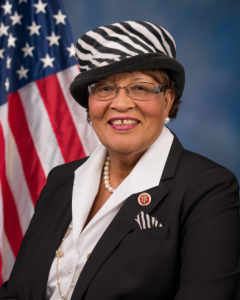 Current Position: US Representative of District 12 since 2015
Current Position: US Representative of District 12 since 2015
Affiliation: Democrat
Former Position: State Delegate from 1994 – 2013
District: northern and eastern portions of Charlotte as well as surrounding areas in Mecklenburg County and Cabarrus County
Upcoming Election:
A college administrator and art professor from Greensboro, Adams is known for her many distinctive hats (she claims to own 900). She won the 2014 special election in North Carolina’s 12th congressional district to fill the vacancy created by the resignation of Mel Watt, becoming the 100th woman serving in the 113th Congress.
She received her Ph.D. in art education/multicultural education from Ohio State University in 1981
Other Positions:
Vice Chair, Subcommittee on Nutrition, Oversight, and Department Operations – Committee on Agriculture
Chair, Subcommittee on Workforce Protections – Committee on Education and Labor
Featured Quote:
#12YearChallenge The last time Congress increased the federal minimum wage, I was a North Carolina state representative who had just passed an increase in our state minimum wage. I also had fewer hats. Needless to say, 12 years is too long. It’s time to #RaiseTheWage!
OnAir Post: Alma Adams NC-12
Brad Knott NC-13
 John Bradford Knott (born April 17, 1986) is an American attorney and politician. He is the member-elect for the United States House of Representatives in North Carolina’s 13th congressional district.
John Bradford Knott (born April 17, 1986) is an American attorney and politician. He is the member-elect for the United States House of Representatives in North Carolina’s 13th congressional district.
Knott ran for the United States House of Representatives seat for North Carolina’s 13th congressional district in the 2024 elections. He advanced to a runoff election against Kelly Daughtry, who finished in first place with 27% of the vote, while Knott obtained about 19%. After Donald Trump and Americans for Prosperity endorsed Knott, Daughtry dropped out of the race, leaving Knott to become the Republican nominee. He won the November election.
OnAir Post: Brad Knott NC-13
Tim Moore NC-14
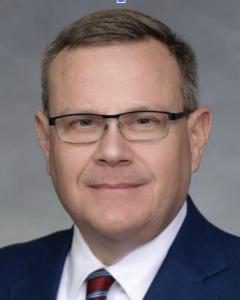 Timothy Keith Moore (born October 2, 1970) is an American attorney and politician who has been the speaker of the North Carolina House of Representatives since 2015 and is the U.S. representative-elect for North Carolina’s 14th congressional district.
Timothy Keith Moore (born October 2, 1970) is an American attorney and politician who has been the speaker of the North Carolina House of Representatives since 2015 and is the U.S. representative-elect for North Carolina’s 14th congressional district.
A Republican, Moore represented the 111th State House District, which includes Cleveland County. Moore was first elected to the state House in 2002.
OnAir Post: Tim Moore NC-14
More Information
Wikipedia
Contents
The government of North Carolina is divided into three branches: executive, legislative, and judicial. These consist of the Council of State (led by the Governor), the bicameral legislature (called the General Assembly), and the state court system (headed by the North Carolina Supreme Court). The Constitution of North Carolina delineates the structure and function of the state government.[1][2][3]
Executive branch
North Carolina‘s executive branch is governed by Article III of the state constitution. The first North Carolina Constitution in 1776 called for a governor and a seven member Council of State elected by the legislature. Currently, the ten-member Council of State of North Carolina includes the following members elected by voters:[1][2][3][4][5][6]
The Council of State as a collective body is accorded little responsibility by the state constitution, though some statues grant it authority in certain cases, particularly in the acquisition of property by the state.[7]

The ten North Carolina Cabinet departments, headed by department secretaries appointed by the Governor, are as follows:[4]
- Department of Administration
- Department of Commerce
- Department of Natural and Cultural Resources
- Department of Environmental Quality
- Department of Health and Human Services
- Department of Information Technology
- Department of Revenue
- Department of Public Safety
- Department of Military and Veterans Affairs
- Department of Transportation
The North Carolina Register includes information about state agency rules, administrative rules, executive orders and other notices, and is published bimonthly.[8][9] The North Carolina Administrative Code (NCAC) contains all the codified rules.[8]
In addition to the cabinet and Council of State, North Carolina has three independent executive agencies: the Office of Administrative Hearings, the Office of the State Controller, and the State Board of Elections.[10][4]
Legislative branch

The legislature derives its authority from Article II of the North Carolina Constitution.[11] The North Carolina General Assembly is the state legislature. Like all other states except for Nebraska, the legislature is bicameral, currently consisting of the 120-member North Carolina House of Representatives[12] and the 50-member North Carolina Senate. The lieutenant governor is the ex officio president of the state Senate. The Senate also elects its own president pro tempore and the House elects its speaker. Its session laws are published in the official North Carolina Session Laws and codified as the North Carolina General Statutes.[8][13][14]
The constitution of North Carolina vests the state’s legislative power in the General Assembly;[15] the General Assembly writes state laws/statutes.[16][17] The assembly has the power to levy taxes[18] and adopts the state budget.[19] The General Assembly has the sole power to propose amendments to the state constitution.[20] If a proposed amendment receives the support of three-fifths of the House and the Senate, it is scheduled for ratification by a statewide referendum.[21][22]
Judiciary

North Carolina’s judiciary derives its authority from Article IV of the North Carolina Constitution.[23] The current judicial system was created in the 1960s after significant consolidation and reform.[24] The state court system is unified into one General Court of Justice.[25] The General Court is composed of a District Court Division, a Superior Court Division, and an Appellate Division.[26] The Administrative Office of the Courts oversees all clerical and financial aspects of the state judicial system.[25]
At the helm of the General Court of Justice and one of the two components of the Appellate Division is the Supreme Court of North Carolina.[27] The Supreme Court consists of one chief justice and six associate justices, all popularly elected to serve eight-year terms.[28] The primary function of the tribunal is to decide questions of law that have arisen in the lower courts and before state administrative agencies,[29] and its docket is typically dominated by cases concerning interpretation of the constitution, major legal questions, and appeals of criminal cases involving capital punishment.[23] The North Carolina Court of Appeals is the state’s intermediate appellate court and consists of fifteen judges who rule in rotating panels of three.[30] Together, the Supreme Court and Court of Appeals constitute the appellate division of the court system.[31]
The Superior Court is the trial court of general jurisdiction in the state.[32][33] In criminal matters, superior courts hear all felony cases and handle appeals of misdemeanors and infractions from District Courts. In civil matters, superior courts have original jurisdiction over civil disputes with an amount in controversy exceeding $25,000. The Superior Court also adjudicates most appeals from state administrative agencies.[34]
In criminal matters, the District Courts have jurisdiction over misdemeanor and infraction cases adjudicated without the presence of a jury.[35] State law also allows them to try some low-level felony cases with the agreement of a judge and the prosecution and defense.[36] In civil matters, the courts have original jurisdiction over civil disputes with an amount in controversy under $25,000, divorces, child custody disputes, and child support payments.[35] Magistrates in the court issue criminal processes, perform marriages, hear eviction and other small claims cases, and order involuntary commitments.[37]
Local government

Overview
The General Assembly’s authority to create local governments comes from Article VII of the Constitution of North Carolina.[38] Local governments in North Carolina primarily consist of counties, cities, and towns.[39] The state makes no legal distinction between a town and a city;[40] all are treated as municipalities, with the name being a matter of choice.[41] North Carolina has 100 counties and more than 552 municipalities.[42] There are also special purpose governments, most of which concern either soil and water conservation or housing and community development.[43] Some local governments are joined in regional councils with others to improve coordination and cooperation.[44]
Counties
Every section of land in North Carolina is included in a county.[45] All counties in the state are led by an elected board of commissioners who employ a county manager.[46] Boards of commissioners vary in size from three to 11 members. In addition to the manager, the commissioners usually hire the county’s clerk, attorney, assessor, and tax collector. Unlike in municipal council-manager governments in the state, the board of commissioners usually must approve all of the manager’s hiring decisions unless they explicitly delegate sole hiring authority to the manager.[47] County government in North Carolina is also more fractured than municipal government, due to the presence of other elected officials such as sheriffs and registers of deeds, who have control over their own staff.[48][49] The office of county sheriff is established by the constitution, and sheriffs are not subject to the oversight of the state government.[50] County government is largely funded through local property taxes.[51] All counties in North Carolina are subdivided into townships. A legacy of Reconstruction era alterations to government structure, townships no longer have any legal authority but serve primarily as organizing units for administrative purposes.[52]
County governments in North Carolina include the following officials:[39]
- Sheriffs
- County commissioners
- Register of deeds
- Clerk of court
- Alcoholic Beverage Control Board
- Board of Education
- Board of Elections
- Public Health Board
- Mental Health Board
- Social Services Board
Municipalities
North Carolina is a Dillon’s rule state,[53] and municipalities are only able to exercise the authority that the General Assembly or state constitution explicitly gives them.[42] All municipalities in North Carolina operate under either mayor-council governments or council-manager government,[42] with most using the latter.[40] All have an elected general governing board known variously as a city or town council, the board of commissioners or the board of aldermen.[42] Some of these municipalities have mayors, who preside over the elected city council, which determines local government policy and creates the city budget. Most mayors are popularly elected and do not typically vote in council meetings. The council hires the city manager and, depending on the municipality, may directly hire a few other officials, such as the city attorney. In cities with a manager, the manager acts as the head executive officer of the city and is responsible for municipal employees and implementing policy.[54] Smaller municipalities are more likely to not employ a manager.[55] The state constitution allows for consolidated city-county government,[56] though Camden County is the only entity in the state to presently operate that way.[57] Some municipalities have limited authority granted by state law, mostly in planning and zoning affairs, extending outside their formal jurisdictions.[58]
Special purpose districts and authorities
Special purpose districts are local governments in the state with taxation power and narrowly defined scope. The most common special districts are sanitary districts and rural fire protection districts. Authorities do not have taxation power. The most common authorities are housing authorities, water and sewer authorities, and airport authorities.[52]
See also
- Politics of North Carolina
- List of governors of North Carolina
- Law of North Carolina
- List of North Carolina state agencies
References
- ^ a b “North Carolina Constitution of 1776”. Yale Law School. 1776. Retrieved September 4, 2019.
- ^ a b “The 1868 constitution”. Learn NC. Retrieved March 5, 2017.
- ^ a b “Constitution of North Carolina, 1971”. North Carolina General Assembly.
- ^ a b c “Executive Branch”. NCPedia. North Carolina Government & Heritage Library. Retrieved September 11, 2019.
- ^ Marshall, Ellaine F. (2001). North Carolina Manual. North Carolina Secretary of State.
- ^ “Article III of the North Carolina State Constitution of 1971”. 1971. Retrieved September 11, 2019.
- ^ Orth, John V. (2006). “Council of State”. NCPedia. North Carolina Government & Heritage Library. Retrieved August 4, 2022.
- ^ a b c “N.C. State Statutes, County and Municipal Ordinances”. University of North Carolina Kathrine R. Everett Law Library. Archived from the original on 13 April 2014. Retrieved 10 April 2014.
- ^ “North Carolina Register”. www.oah.nc.gov. Retrieved December 6, 2019.
- ^ Brown, Chantal; Humphries, Ben (February 5, 2025). “As a new session begins, here’s everything you need to know about North Carolina government”. EdNC. Retrieved February 14, 2025.
- ^ Orth & Newby 2013, p. 95.
- ^ called the House of Commons until 1868 when it was change in the North Carolina Constitution
- ^ “North Carolina Government”. NC.GOV. Archived from the original on September 18, 2019. Retrieved September 11, 2019.
- ^ “Session Laws”. ncgovdocs.org. Archived from the original on December 6, 2019. Retrieved December 6, 2019.
- ^ Orth & Newby 2013, pp. 95–96.
- ^ Orth & Newby 2013, p. 104.
- ^ “Structure of the North Carolina General Assembly”. North Carolina General Assembly. Retrieved November 19, 2019.
- ^ Orth & Newby 2013, p. 55.
- ^ Orth & Newby 2013, p. 118.
- ^ Doyle, Steve (August 9, 2023). “Could North Carolina voters change the process for adopting constitutional amendments? Check out the various practices”. Fox 8 WGHP. Nexstar Media Group. Retrieved November 20, 2023.
- ^ Anderson, Bryan (March 16, 2023). “Cooper’s Veto Predicament”. The Assembly. Retrieved March 16, 2023.
- ^ Orth & Newby 2013, p. 107.
- ^ a b “Judicial Branch”. nc.gov. The State of North Carolina. Retrieved March 24, 2023.
- ^ Fleer 1994, p. 132.
- ^ a b Williams, Wiley J. (2006). “Judiciary, State”. NCPedia. North Carolina Government & Heritage Library. Retrieved May 24, 2023.
- ^ Orth & Newby 2013, p. 128.
- ^ Orth & Newby 2013, pp. 130, 133.
- ^ Orth & Newby 2013, p. 130, 138.
- ^ Brinkley, Martin H. “Supreme Court of North Carolina: A Brief History”. North Carolina Administrative Office of the Courts. Archived from the original on March 21, 2008. Retrieved July 16, 2008.
- ^ Orth & Newby 2013, pp. 131–132.
- ^ Orth & Newby 2013, p. 130.
- ^ Cooper & Knotts 2012, p. 179.
- ^ Orth & Newby 2013, p. 135.
- ^ Cooper & Knotts 2012, pp. 178–179.
- ^ a b “District Court”. North Carolina Judicial Branch. North Carolina Administrative Office of the Courts. Retrieved May 24, 2023.
- ^ Baldauf, Rachel (September 11, 2023). “How NC’s Border Belt counties reduced court backlogs caused by pandemic”. Border Belt Independent. Retrieved September 23, 2023.
- ^ “Court Officials”. North Carolina Judicial Branch. North Carolina Administrative Office of the Courts. Retrieved May 23, 2023.
- ^ Orth & Newby 2013, pp. 169–170.
- ^ a b Whittaker, Gordon (June 2012). Local Government in North Carolina (PDF) (4th ed.). Chapel Hill: UNC School of Government and the North Carolina City and County Management Association. Retrieved 18 May 2019.
- ^ a b Stick, David (2006). “Towns and Cities”. NCPedia. North Carolina Government & Heritage Library. Retrieved August 4, 2022.
- ^ Lawrence 2014, p. 5.
- ^ a b c d “How NC Cities Work”. North Carolina League of Municipalities. Archived from the original on April 13, 2024. Retrieved September 22, 2023.
- ^ Cooper & Knotts 2012, pp. 214–215.
- ^ Cooper & Knotts 2012, p. 215.
- ^ Lawrence 2014, p. 6.
- ^ Cooper & Knotts 2012, pp. 209, 213.
- ^ Cooper & Knotts 2012, p. 213.
- ^ Cooper & Knotts 2012, pp. 213–214.
- ^ Lawrence 2014, p. 7.
- ^ Orth & Newby 2013, p. 170.
- ^ Nagem, Sarah (July 7, 2022). “Scotland County lowers property tax rate, but it’s still the highest in North Carolina”. Border Belt Independent. Retrieved July 20, 2022.
- ^ a b Lawrence 2014, p. 8.
- ^ Cooper & Knotts 2012, p. 216.
- ^ Cooper & Knotts 2012, pp. 209, 211–212.
- ^ Cooper & Knotts 2012, p. 209.
- ^ Orth & Newby 2013, p. 171.
- ^ “Camden’s History”. Camden County, North Carolina. Retrieved February 6, 2025.
- ^ Owens, David W. (March 2023). “Extraterritorial Jurisdiction for Planning and Development Regulation”. UNC School of Government. Retrieved September 11, 2025.
Works cited
- Cooper, Christopher A.; Knotts, H. Gibbs, eds. (2012). The New Politics of North Carolina. Chapel Hill: University of North Carolina Press. ISBN 9781469606583.
- Fleer, Jack D. (1994). North Carolina Government & Politics. Lincoln: University of Nebraska Press. ISBN 9780803268852.
- Lawrence, David M. (2014). “Chapter 1 : An Overview of Local Government” (PDF). County and Municipal Government (second ed.). Chapel Hill: University of North Carolina School of Government. pp. 2–13. ISBN 978-1-56011-775-9.
- Orth, John V.; Newby, Paul M. (2013). The North Carolina State Constitution (second ed.). Oxford University Press. ISBN 9780199300655.
External links
- “North Carolina Government”. NC.gov. Retrieved September 11, 2019.
 Media related to Government of North Carolina at Wikimedia Commons
Media related to Government of North Carolina at Wikimedia Commons
